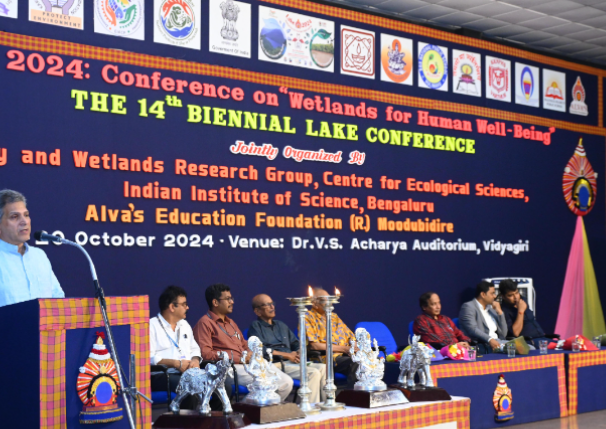14th Biennial Lake Conference
The 14th biennial lake conference took place in Moodbidri from October 17 to 20, 2024. It focused on the theme ‘Lake 2024 – wetlands for human wellbeing’. Organized by the Wetlands Research Group at the Indian Institute of Science and Alva’s Education Foundation, the conference brought into light urgent ecological issues. It concluded with strong recommendations for the government to act on ecologically sensitive areas.
Ecologically Sensitive Panchayats
The conference urged the government to notify ecologically sensitive panchayats. This aligns with Section 5(1) of the Environment Protection Act 1986. The aim is to enhance ecosystem health through conservation practices tailored to specific locations.
Effectiveness of Biodiversity Management Committees
Most Gram Panchayat Biodiversity Management Committees (BMCs) have not been effective since the Biodiversity Act 2002 was enacted. The conference suggested that zilla panchayats should oversee these BMCs. This oversight is expected to improve ecosystem health and manage resource flows more effectively.
Phased Programme for Improvement
A phased program is recommended, supervised by State Biodiversity Boards. This approach aims to enhance the effectiveness of the Biodiversity Act. It seeks to ensure that local committees can better manage biodiversity.
The conference called for a new economic metric called Gross Ecosystem Product (GEP). This metric would measure Nature’s contributions to society. Current indicators like GDP often ignore resource depletion and ecological degradation.
Natural Capital Accounting Framework
Establishing a natural capital accounting framework is crucial. This framework would integrate ecological benefits into government evaluations. It would help develop eco-compensation policies based on ecosystem services.
Water is vital for human survival. The Western Ghats serve as a critical water source for the Indian peninsula. Effective management of this resource is essential for sustainability.
Hydro-Centric Development Approach
The conference advocates for a hydro-centric approach to development. This involves strict protection of all water bodies and their catchments. Intrusive projects that could harm these ecosystems should be avoided.
Formation of Western Ghats Task Force
A Western Ghats Task Force is recommended for each peninsular Indian State. This task force would ensure good governance of natural resources. It would focus on the conservation and sustainable use of water and biodiversity.
The task force would support State Biodiversity Boards (SBB) in achieving regional food and water security. This collaboration aims to enhance the management of local ecosystems.
Local Documentation and Protection
Locality-wise documentation of ecosystems is necessary. This includes water bodies, sacred groves, and myristica swamps. The current status and estimates of hydrological services must be recorded, including ongoing and potential contributions.
The conference underscored the need for immediate action to protect and manage ecosystems. By implementing these recommendations, the goal is to improve both biodiversity and human wellbeing across the region.
Month: Current Affairs - October, 2024
Category: Summits and Conferences








